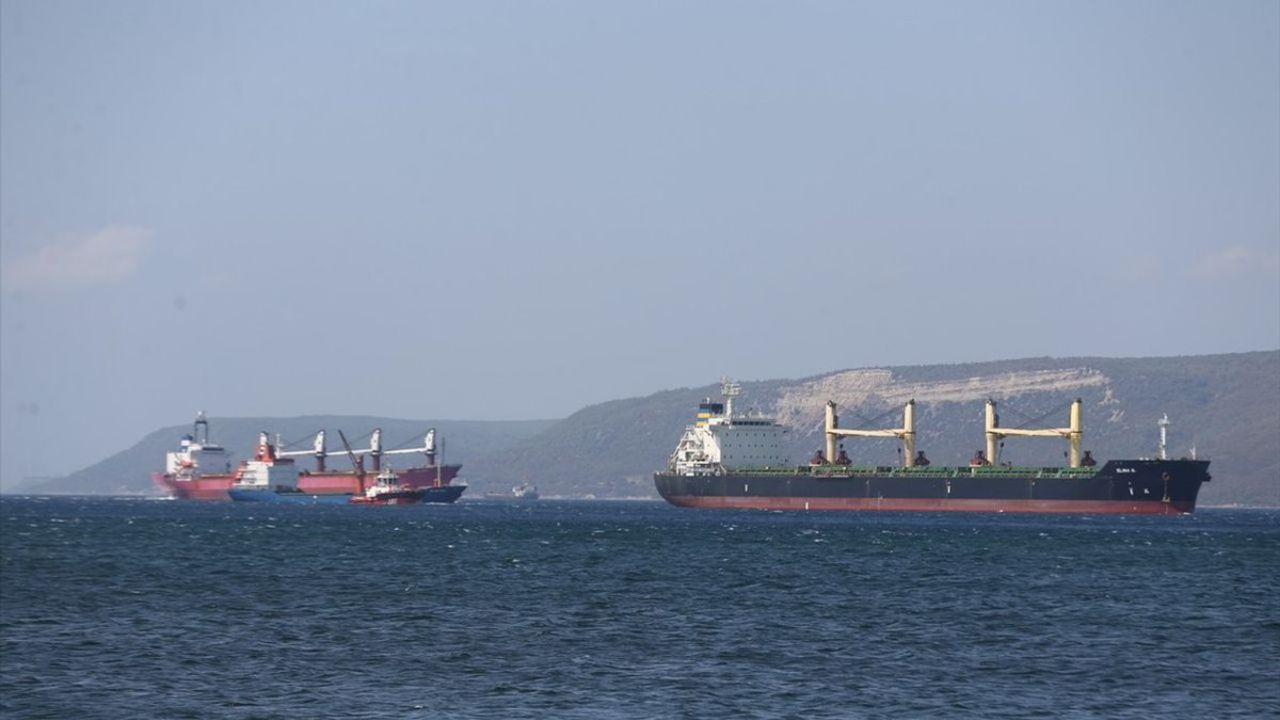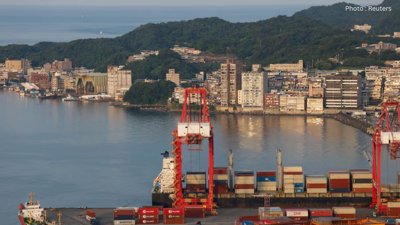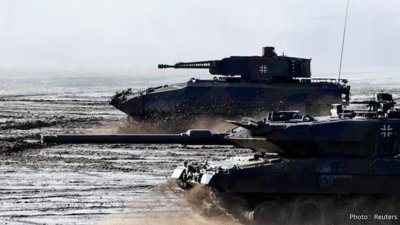
Post by : Avinab Raana
Photo : X / Aksiyon
Engine Failure Leaves Elina B Disabled Near Sarıçay
In a significant maritime incident off the Turkish coast, the Malta-flagged bulk carrier Elina B suffered a major engine failure near Sarıçay, in the Çanakkale Strait, on September 5, 2025. The vessel, en route from Singapore to Gemlik, became disabled mid-transit, prompting a coordinated response from Turkish maritime authorities. Fortunately, there were no injuries or environmental hazards reported, but the situation underscores the challenges of navigating critical but congested waterways.
Vessel Profile: Specifications and Route
The Elina B is a 196-meter bulk carrier with a deadweight tonnage of 58,551 tons, built in 2011. Operating under the Malta flag, the vessel transports industrial bulk commodities across key international trade routes. At the time of the incident, it was carrying standard bulk cargo destined for Gemlik, a major industrial port on Turkey’s southern coast. The vessel’s size and cargo profile made the engine failure a serious concern for navigation in the narrow strait.
Immediate Maritime Response
Upon receiving distress signals from the disabled vessel, the Çanakkale Ship Traffic Services Center coordinated a rapid response. Turkish authorities dispatched two tugboats, Kurtarma 18 and Kurtarma 20, to stabilize and tow the vessel to a safe anchorage. A strait pilot was also assigned to guide the vessel through the congested waters, ensuring that other commercial traffic was not disrupted.
Towage and Anchorage Operations
The tugboats successfully secured towlines to the Elina B and maneuvered it to the Karanlı Limanı anchorage near Çanakkale Port. Precise navigation was essential given the vessel’s dimensions and the strait’s currents. At coordinates 40° 02' N, 026° 19' E, the vessel was safely moored, remaining stationary as crews assessed engine damage and planned repairs.
Crew Safety and Protocols
All 22 crew members aboard the Elina B remained safe throughout the incident. Standard emergency protocols, including immediate engine shutdown, distress signaling, and life-saving preparations, were followed meticulously. The crew’s training and adherence to maritime safety procedures played a crucial role in preventing injuries and ensuring a controlled situation.
Environmental Safety Measures
Despite the engine failure, there were no reports of pollution or environmental contamination. The vessel’s cargo holds and hull remained intact, and fuel containment measures prevented leaks. Turkish maritime authorities maintained continuous monitoring of the anchorage area to ensure that the strait’s sensitive ecosystem was protected during salvage operations.
Strategic Importance of the Çanakkale Strait
The Çanakkale Strait, also known as the Dardanelles, is a critical maritime corridor connecting the Aegean Sea to the Sea of Marmara. The strait accommodates significant commercial traffic, including bulk carriers, container vessels, and passenger ships. Incidents such as the Elina B engine failure highlight the need for precise navigation, real-time monitoring, and coordinated response systems in these congested waterways.
Challenges in Narrow and Congested Waterways
Navigating the Çanakkale Strait poses unique challenges. Its narrow width, strong currents, and high traffic density require experienced pilots and robust vessel management. Engine failures or mechanical malfunctions can quickly escalate, endangering both the disabled vessel and surrounding traffic. The incident reinforces the importance of preventative maintenance, vessel monitoring, and contingency planning for all maritime operators in the region.
Salvage Planning and Engineering Response
Maritime engineers immediately evaluated the Elina B’s engine failure to determine the safest repair strategy. Temporary stabilization measures were implemented to ensure the vessel remained stationary at the anchorage. Salvage operations involve detailed inspection of the engine, propulsion system, and related mechanical components. Teams are coordinating logistics for replacement parts, repair personnel, and potential towing to a shipyard if on-site repairs prove insufficient.
Implications for International Shipping
While the Elina B incident did not halt commercial traffic, it highlights the vulnerability of vessels in critical straits to mechanical failures. Shipping companies operating in international waters must consider redundancy in navigation and propulsion systems, as well as emergency response readiness, to prevent operational delays or environmental impacts.
Historical Context of Maritime Incidents in the Region
The Çanakkale Strait has witnessed several maritime incidents over the decades, ranging from groundings to mechanical failures. Lessons from past events emphasize the need for coordinated maritime surveillance, rapid response teams, and strict adherence to safety regulations. The Elina B grounding serves as a contemporary reminder of these operational imperatives.
Role of Technology in Incident Prevention
Advanced monitoring systems, such as real-time engine diagnostics and satellite-based navigation, are increasingly used to prevent incidents like engine failures. However, the Elina B case demonstrates that mechanical issues can occur despite technology. Continuous innovation in predictive maintenance and monitoring systems is critical to enhancing safety for vessels navigating high-traffic and challenging waters.
Economic Impact of Engine Failures
Engine failures can have cascading economic consequences. While the Elina B’s cargo was secured, delays in delivery schedules can affect supply chains, insurance premiums, and overall trade efficiency. Companies shipping bulk commodities through narrow international corridors must account for these risks in operational planning and cost management.
Coordination Among Maritime Agencies
The response to the Elina B incident illustrates effective coordination among maritime agencies, tug operators, and vessel crews. This collaboration ensures that incidents are managed efficiently while minimizing risk to crew, cargo, and surrounding vessels. Such coordination serves as a model for emergency response protocols in other congested maritime regions worldwide.
Environmental Monitoring and Recovery Operations
Environmental safety is paramount in incidents involving disabled vessels. Authorities deployed monitoring teams to oversee water quality, prevent fuel spills, and ensure cargo integrity. Recovery operations are carefully designed to minimize ecological disruption, preserving the marine environment while addressing the mechanical failure.
Lessons for Maritime Policy Development
Incidents like the Elina B engine failure inform maritime safety regulations and policy frameworks. They emphasize the necessity of enhanced inspection regimes, stricter maintenance standards, and effective communication between vessels and port authorities. Policymakers may use such incidents to refine safety codes, improve strait navigation protocols, and invest in technological upgrades for vessel monitoring.
Importance of Crew Training
The Elina B crew’s adherence to emergency protocols demonstrates the critical role of training in maritime safety. Regular drills, emergency preparedness exercises, and scenario-based planning equip crews to respond efficiently to mechanical failures, reducing the likelihood of accidents escalating into environmental or human disasters.
Long-Term Implications for Bulk Shipping
The incident underscores the challenges bulk carriers face when operating in strategic straits. Future vessel design may incorporate more robust propulsion redundancy, advanced engine monitoring, and enhanced safety systems to mitigate risks. The Elina B case will likely influence shipping companies’ operational policies, insurance practices, and investment in crew training.
International Attention and Shipping Industry Response
Global maritime observers are closely monitoring the Elina B incident, evaluating lessons for broader shipping practices. Stakeholders emphasize that strategic chokepoints like the Çanakkale Strait demand continuous risk assessment and preparedness, especially as global trade volumes increase and shipping corridors face higher traffic densities.
Preventative Maintenance and Future Safeguards
Preventative maintenance remains the most effective strategy against incidents like the Elina B engine failure. Regular inspections, predictive analytics for component wear, and timely replacement of critical machinery can significantly reduce the risk of operational disruption. Maritime experts advocate for industry-wide adoption of best practices to safeguard vessels, crews, and cargo.
Economic Significance of Strait Safety
The safety and operational efficiency of strategic waterways have direct economic consequences. Any delay or accident can affect trade flows, insurance liabilities, and port operations. By managing incidents promptly and effectively, authorities ensure that critical trade routes like the Çanakkale Strait continue to function reliably, supporting both regional and international commerce.
Balancing Safety, Commerce, and Environment
The engine failure of the Elina B highlights the delicate balance between commerce, operational safety, and environmental stewardship in high-traffic maritime corridors. Thanks to swift action by Turkish maritime authorities and the disciplined response of the vessel crew, the incident was contained without injuries or environmental impact.
As international shipping continues to grow, incidents like this remind industry stakeholders of the importance of preparedness, technological innovation, and stringent safety measures. Bulk carriers navigating narrow straits must operate with heightened awareness, ensuring that operational and environmental risks are mitigated.
The Elina B incident serves as both a cautionary tale and a benchmark for maritime safety protocols in critical straits worldwide. It reinforces the principle that preparedness, coordination, and adherence to international safety standards are indispensable to the modern shipping industry.
Elina B engine failure, Sarıçay maritime incident, Turkey bulk carrier










Advances in Aerospace Technology and Commercial Aviation Recovery
Insights into breakthrough aerospace technologies and commercial aviation’s recovery amid 2025 chall

Defense Modernization and Strategic Spending Trends
Explore key trends in global defense modernization and strategic military spending shaping 2025 secu

Tens of Thousands Protest in Serbia on Anniversary of Deadly Roof Collapse
Tens of thousands in Novi Sad mark a year since a deadly station roof collapse that killed 16, prote

Canada PM Carney Apologizes to Trump Over Controversial Reagan Anti-Tariff Ad
Canadian PM Mark Carney apologized to President Trump over an Ontario anti-tariff ad quoting Reagan,

The ad that stirred a hornets nest, and made Canadian PM Carney say sorry to Trump
Canadian PM Mark Carney apologizes to US President Trump after a tariff-related ad causes diplomatic

Bengaluru-Mumbai Superfast Train Approved After 30-Year Wait
Railways approves new superfast train connecting Bengaluru and Mumbai, ending a 30-year demand, easi